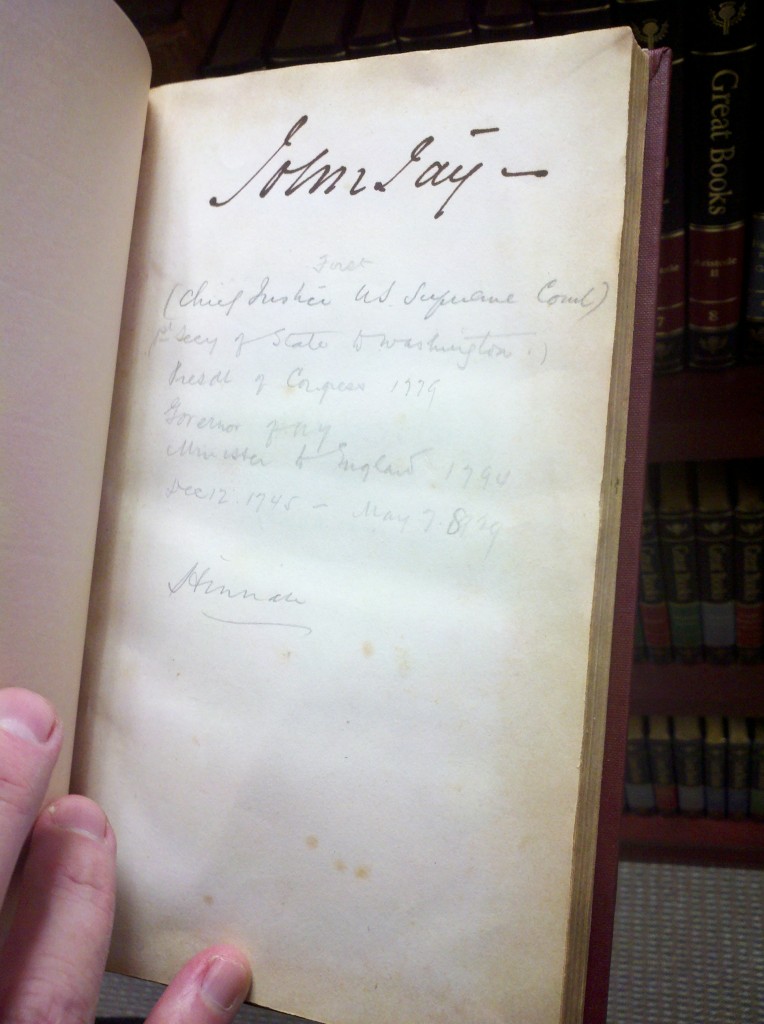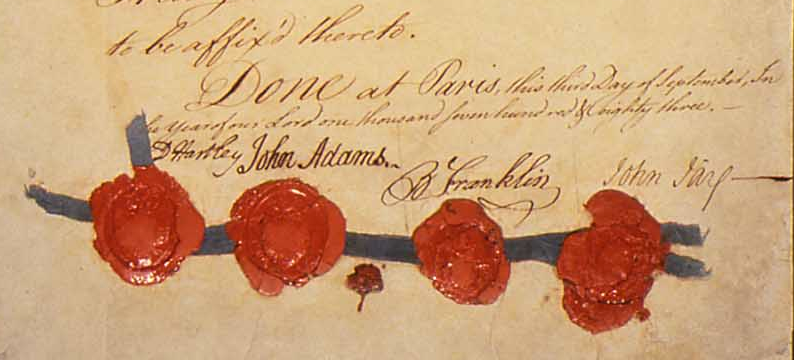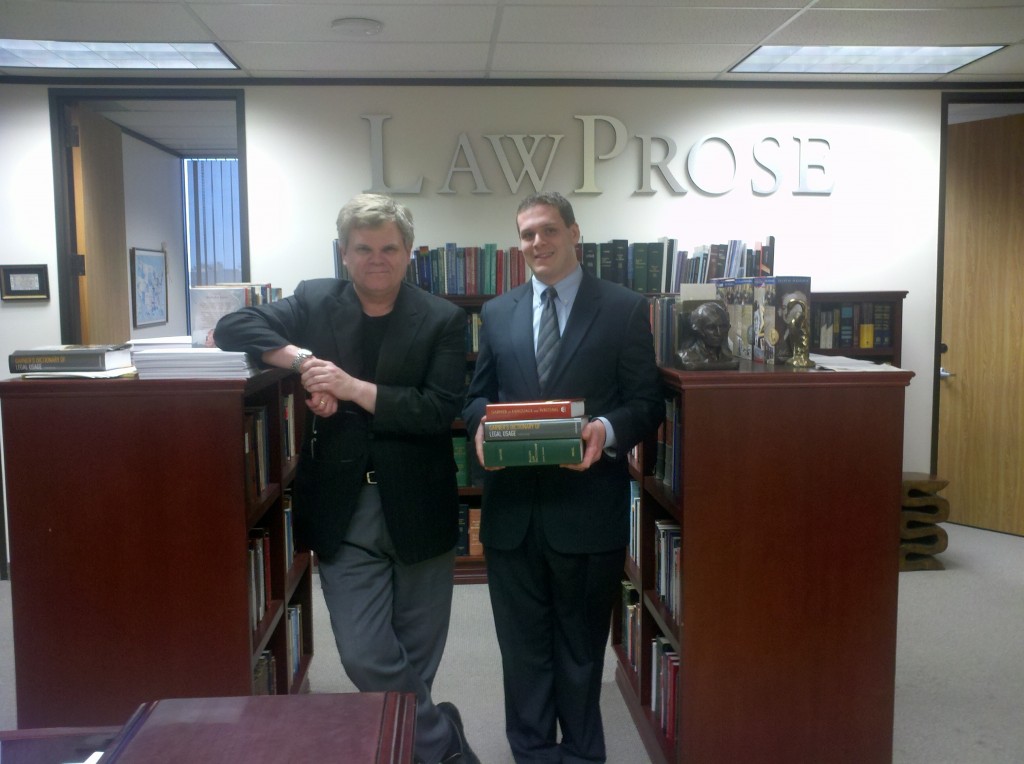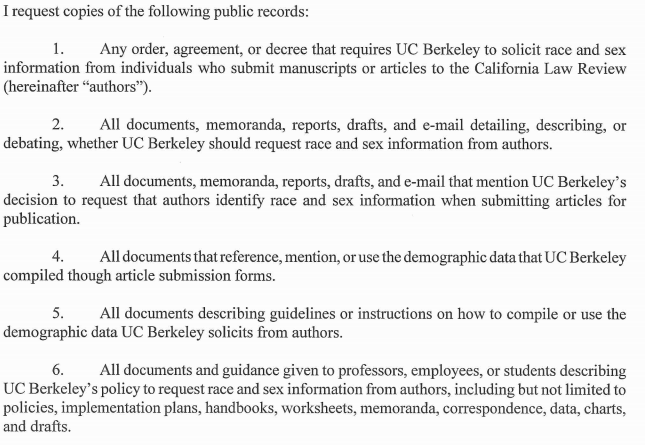On Friday and Saturday, while I was in Dallas for a conference, I paid a visit to the headquarters of LawProse.
Bryan Garner was kind enough to give me a tour of his office, which had an amazing collection of rare books. The walls are filled with photographs of Garner with various Supreme Court Justices, Circuit Judges, and other legal greats.
Garner is working on a book about the evolution of English grammar, and he showed me dozens of books from the 17th and 18th century–many first printings.
Garner also had a number of books previously owned by very famous people. The coolest item (that I saw, at least) was a book that was originally owned by John Jay–with his signature on the first page! Below, it says “First Chief Justice US Supreme Court.”
Here is Jay’s signature on The Treaty of Paris, along with John Adams and Benjamin Franklin.
Garner then showed me a book authored by legal great Jerome Frank. He told me that he had purchased it used for $25. I opened it up, and there was an inscription. “To Learned Hand. From Jerome Frank.” !!! Garner had purchased, inadvertently, a book from Jerome Frank to Learned Hand. !!!
I then joked to Garner that he needed a book from Cardozo to round out the New York great jurists. Garner reached to the next book on the stack, and what do you know, it was signed by Benjamin Cardozo. There were many more that I did not see.
Next, Garner took me to his rare book room, which was locked, and guarded by the Green Bag version of Cerberus–a gaggle of Supreme Court bobbleheads perpetually nodding in approval. The room had the musty scent of centuries of legal tomes. I dared not touch anything. He told me his oldest book is a dictionary from 1491.
In addition to his collection at his office, at his home home, he has 14,000 volumes, most of which are catalogued.
I asked Garner where he gained such a deep appreciation of language. He told me that when he was a teenager, a girl told him that she really admired his vocabulary. Garner took the message to heart, and started to keep a journal of words. Soon, the journal became several inches thick, and Garner recognized his calling. He still has the journal in his office today.
If you ever have the chance to meet Garner, or attend one of his great seminars, I would highly recommend it. In 2008, I attended a CLE Garner put on with Justice Scalia at the Kennedy Center in Washington, D.C. It was very enjoyable, and quite memorable.
On my way out, Garner generously autographed, and gave me copies of his most recent books.



